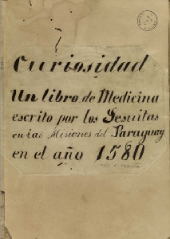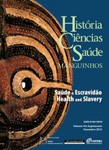March 8, International Women’s Day 2022

First world conference on women organized by the UN in 1975. The United Nations has organized four world conferences on women, which were held in Mexico City (1975), Copenhagen (1980), Nairobi (1985), and Beijing (1995).
In its 29 years of existence, Revista História Ciências Saúde Manguinhos has published numerous articles, special issues, and blog posts that discuss different aspects of women and gender, and more recently, the HCS-Manguinhos’ blog published interviews with prominent researchers about these topics.
To celebrate International Women’s Day, we highlight some of these materials. Topics include issues related to women in science, the history of feminism in Latin America, a historiographical review of the history of women, science, and medicine, and a feminist perspective of the history of sciences and medicine.
Enjoy the reading!
 Historia y feminismo en América Latina The book by the Argentine historian Dora Barrancos condenses the significant events of the feminisms of the 20th century in the region, its protagonists, and demands. According to the author, the first wave of feminism in the region was characterized by the so-called “maternalism,” when women began claiming their rights as mothers but did not question their reproductive role. Concerning the central claims of the feminist movements in Latin America, the author highlighted the fight for civil, political, educational, and remunerative rights. In contrast, other authors have privileged the right to suffrage.
Historia y feminismo en América Latina The book by the Argentine historian Dora Barrancos condenses the significant events of the feminisms of the 20th century in the region, its protagonists, and demands. According to the author, the first wave of feminism in the region was characterized by the so-called “maternalism,” when women began claiming their rights as mothers but did not question their reproductive role. Concerning the central claims of the feminist movements in Latin America, the author highlighted the fight for civil, political, educational, and remunerative rights. In contrast, other authors have privileged the right to suffrage.
 A historiographic essay on the history of women, medicine, and gender This article published in HCS-Manguinhos (vol.27 no.1 Jan./Mar. 2020) presents a partial historiographical review of the history of women, science, and medicine, especially the field of studies that intersects politically with feminism and has been written mostly by women. It explores the most important works and approaches in this field. The topics addressed in the historiographical review range from women’s oppression to the social history of women and medicine and issues related to gender and body.
A historiographic essay on the history of women, medicine, and gender This article published in HCS-Manguinhos (vol.27 no.1 Jan./Mar. 2020) presents a partial historiographical review of the history of women, science, and medicine, especially the field of studies that intersects politically with feminism and has been written mostly by women. It explores the most important works and approaches in this field. The topics addressed in the historiographical review range from women’s oppression to the social history of women and medicine and issues related to gender and body.
 Activism in the history of medicine Dr. Susan M. Reverby is Professor Emerita in Women’s and Gender Studies at Wellesley College. Throughout her career, she sought to combine her interests in women’s studies, health activism, race, and public health ethics. In this interview, among other topics, she talked about the dialogue between women’s studies and the history of medicine in the US: “My position at Wellesley College, where I taught for 34 years, was in Women’s Studies, not history. So it forced me to think about gender in multiple ways. Regarding my work, I was originally trained as an undergraduate in labor history. I worked for a left health think tank in the early 1970s, was a women’s health activist, and then went to graduate school. My dissertation, then book, focused on nurses since it combined all my interests: health, women, workers, and activism.” she said.
Activism in the history of medicine Dr. Susan M. Reverby is Professor Emerita in Women’s and Gender Studies at Wellesley College. Throughout her career, she sought to combine her interests in women’s studies, health activism, race, and public health ethics. In this interview, among other topics, she talked about the dialogue between women’s studies and the history of medicine in the US: “My position at Wellesley College, where I taught for 34 years, was in Women’s Studies, not history. So it forced me to think about gender in multiple ways. Regarding my work, I was originally trained as an undergraduate in labor history. I worked for a left health think tank in the early 1970s, was a women’s health activist, and then went to graduate school. My dissertation, then book, focused on nurses since it combined all my interests: health, women, workers, and activism.” she said. 
A feminist perspective on the history of medicine The history of women in medicine began to be written at the end of the 19th century, influenced by the suffragette struggles and by the interest in sexuality that emerged from the 1970s onwards in the academic world, in connection with the movements for the rights of women to contraception and abortion. This interview with researcher Teresa Ortiz-Gómez explores the contributions of feminism to the history of medicine. According to the researcher, feminism has betrayed history and interest by studying the medical ideas of all times about ‘the woman’ and the female body; the professional, domestic, scientific, and political activities of women related to health; and the experiences of health and illness of women themselves. Teresa Ortiz-Gómez is a professor of history of science at the University of Granada. She has been working with a feminist perspective on the history of medicine for over 30 years.
 Science and gender, feminism and history of science: an interview with Evelyn Fox Keller This interview covers the trajectory of Evelyn Fox Keller, emeritus professor of history and philosophy of science at the Massachusetts Institute of Technology. Keller reflects on her career and the challenges she had to overcome to push back the frontiers of science with her pioneering work on language, gender, and science, which has been very influential in changing views in the history of science.
Science and gender, feminism and history of science: an interview with Evelyn Fox Keller This interview covers the trajectory of Evelyn Fox Keller, emeritus professor of history and philosophy of science at the Massachusetts Institute of Technology. Keller reflects on her career and the challenges she had to overcome to push back the frontiers of science with her pioneering work on language, gender, and science, which has been very influential in changing views in the history of science.
Gender, women, and science This special dossier of HCS-Manguinhos published in 2008 is entirely dedicated to gender, women, and science. It originated in the International Seminar Making Gender 7 – Gender and Preconceptions, which took place at the Universidade Federal de Santa Catarina in August 2006. The symposium focused on the dissemination and debate of historical studies regarding gender relations in the natural and exact sciences, topics that are present in this dossier. See the full edition on gender and science.
Gender and work in Argentina of the 20th century A brief interview with historian Graciela Queirolo, author of the book “Mujeres en las oficinas: trabajo, género y clase en el sector administrativo (Buenos Aires, 1910-1950)”. The book analyzes the professional experience of typists and secretaries whose emergency changed the city, the work environment, and the family organization.
See more articles about women, gender and science in HCS-Manguinhos:
Tensiones de género en la protección de la infancia María Soledad Rojas Novoa analiza las condiciones de emergencia del movimiento americano de protección de la infancia a principios del siglo XX.
The idealized representation of women in Brazilian magazines, 1940-1960 It analyses the female figures of the advertisements published in O Cruzeiro and Manchete magazines between the 1940s and 1960s.
Mujeres e higiene industrial en el México posrevolucionarioEl artículo analiza un documento sobre el trabajo de mujeres en la fábrica textil La Perfeccionada en la Ciudad de México, en 1919.
Women made visible: the Institute of Tropical Medicine in PortugalThis work in progress looks at the Institute’s scientific journal to identify the participation of women in tropical medicine between 1943 and 1966.
Women involved in Brazil’s health policy on leprosy Francieli Lunelli Santos and José Augusto Leandro examine the family profiles of women holding key decision-making positions in health policy concerning leprosy from the mid-1920s to the late 1940s.
Women in sciences, a historiographical reflection On International Women’s Day, we selected articles that offer a historiographical reflection on women’s contribution to science and technology.
Peruvian women alleging forced sterilization seek justice Thousands of Peruvian women have been seeking justice, alleging they were sterilized without consent in the 1990s under an aggressive population control campaign carried out by the government of former President Alberto Fujimori.
The idealized representation of women in Brazilian magazines, 1940-1960 It analyses the female figures of the advertisements published in O Cruzeiro and Manchete magazines between the 1940s and 1960s.
Género, sanidad y colonialidad: la ‘mujer marroquí’ y la ‘mujer española’ en la política sanitaria de España en Marruecos, Isabel Jiménez-Lucena. Hist. cienc. saude-Manguinhos, Jun 2006, vol.13, no.2.
The biomedicalisation of illegal abortion: the double life of misoprostol in Brazil, Silvia de Zordo. Hist. cienc. saude-Manguinhos, Mar 2016, vol.23, no.1.
La protección a la maternidad de las trabajadoras en Argentina: aspectos legales y administrativos en la primera mitad del siglo XX, Carolina Biernat y Karina Ramacciotti, Hist. cienc. saude-Manguinhos, Dic 2011, vol.18, suppl.1
La tutela estatal de la madre y el niño en la Argentina: estructuras administrativas, legislación y cuadros técnicos (1936-1955). Carolina Biernat y Karina Ramacciotti. Hist. cienc. saude-Manguinhos, Jun 2008, vol.15, no.2.
Parirás sin dolor: poder médico, género y política en las nuevas formas de atención del parto en la Argentina (1960-1980), Karina Felitti. Hist. cienc. saude-Manguinhos, Dic 2011, vol.18, suppl.1.
Intersecciones en las configuraciones de la maternidad en la historia argentina, 1900-1946: registros médicos y culturales bajo la lupa, Karina Felitti. Hist. cienc. saude-Manguinhos, Mar 2016, vol.23, no.1.
Cancer, women, and public health: the history of screening for cervical cancer, Ilana Löwy. Hist. cienc. saude-Manguinhos, July 2010, vol.17, suppl.1.
Morbimortalidad femenina en la Puna jujeña: potencialidad de la técnica autopsia verbal, Raquel Irene Drovetta. Hist. cienc. saude-Manguinhos, 2008, vol.15.
Género, sanidad y colonialidad: la ‘mujer marroquí’ y la ‘mujer española’ en la política sanitaria de España en Marruecos, Isabel Jiménez-Lucena . Hist. cienc. saude-Manguinhos, Jun 2006, vol.13, no.2.
Enfermería de salud pública, modernización y cooperación internacional: El proyecto de la Escuela Nacional de Enfermeras de Venezuela, 1936-1950, Hebe M. C. Vessuri. Hist. cienc. saude-Manguinhos, Dic 2001, vol.8, no.3.
Eugenics, sterilization, and historical memory in the United States, Alexandra Minna Stern. Hist. cienc. saude-Manguinhos, Dec 2016, vol.23, suppl.1.
Madres y niños en las políticas del Servicio Nacional de Salud de Chile (1952-1964), María Soledad Zárate Campos y Lorena Godoy Catalán. Hist. cienc. saude-Manguinhos, Dic 2011, vol.18, suppl.1.










